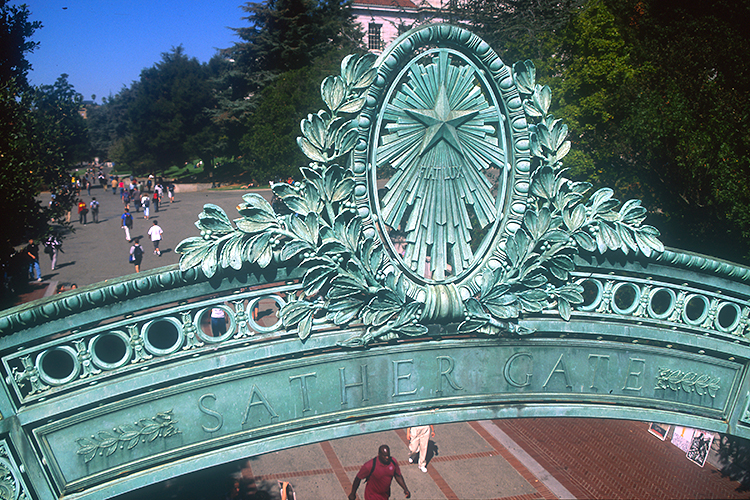Berkeley Talks: How higher ed is transforming during the pandemic
Top leaders at UC Berkeley discuss how the campus is challenging convention in its new approach to instruction and learning, and consider what the implications for higher education are likely to be
July 3, 2020
Subscribe to Berkeley Talks, a Berkeley News podcast that features lectures and conversations at UC Berkeley.

In this talk, top leaders at UC Berkeley discuss how the coronavirus pandemic has spurred the campus to reimagine its approach to instruction and learning. (Photo by Peg Skorpinski)
The switch to remote learning, triggered by the coronavirus pandemic, is realigning several education fundamentals. In this talk, top leaders at UC Berkeley — Chancellor Carol Christ; Bob Jacobsen, dean of undergraduate studies; and Rich Lyons, chief innovation and entrepreneurship officer — discuss how Berkeley is challenging convention in its new approach to instruction and learning, and consider what the implications for higher education are likely to be.
“Universities started as being the place you could go to get information because books were scarce,” said Jacobsen. “Then, Gutenberg came along. But they [universities] didn’t go out of business — they became about motivation and assessment. You would go to a class to help you study, to help you learn … we’ve done that for a thousand years.
“Then, online came along, and we thought that was about distribution. But what I think we’re learning now is that it’s not. What it’s actually about is providing a new form of motivation for studiers and almost teaching them to self-regulate. They can get information anywhere. … This is about teaching them to learn it themselves, to know when they’ve learned it and to start to use it to change the world. I think we’re thinking of online education differently than we did a year ago because of these changes.”
In finding new ways for students to access their education, Christ says, it’s especially important that each decision the campus makes carries with it a deep commitment to equity.
“A lot of faculty that I’ve talked to about this sudden move into remote instruction talk about it as just discovering a muscle that they didn’t know they had,” said Christ. “I think that the same thing is true institutionally. What I think is going to happen 10 years from now, probably even fewer years from now, is we’re really going to extend our reach in ways that we will be able to reach more people, be able to provide more access to the extraordinary instruction teaching that Berkeley has, and I think limitations of time and space are going to mean less.
“So, if we do this well, we will be able to create greater equity in the sense that kinds of real obstacles or challenges for students — work schedules, inability to go full-time, commuting — we can make much less of an obstacle with the remote capabilities that we’re developing.”
This conversation, which took place on June 24, 2020, is part of the Commonwealth Club’s Healthy Society Series.
Listen to the full discussion in Berkeley Talks episode #87: “How higher ed is transforming during the pandemic.” Watch the video of the conversation below.